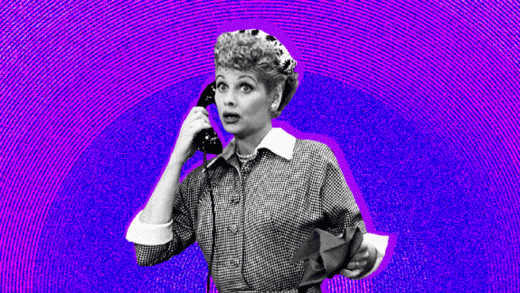‘Being the Ricardos’: 5 leadership lessons we can learn from Lucille Ball
Aaron Sorkin’s new movie Being the Ricardos—about the First Couple of TV Sitcoms, Lucille Ball and Desi Arnaz—started streaming on Prime Video this week, and social media already has tons of questions, ranging from the casting choice of Nicole Kidman to whether or not the term “gaslight” would have been used as a verb in the 1950s.
Casting and alleged anachronisms aside, business leaders can learn a lot from the barrier-breaking woman who accomplished so much in the working world during a time when most American women were homemakers like . . . Lucy Ricardo. Let’s break down five leadership takeaways from 70 years ago that are just as applicable today.
Female bosses rule
Ball was not just the face of I Love Lucy but also a studio executive; she and then-husband Arnaz started Desilu Productions. She maintained a lot of control over the TV show that put the pair on the map together. Her creativity and vision were noteworthy, and she’s the one who fought CBS to get her Cuban-born husband to play opposite her on the show.
Self-branding is key
The series that made Lucy a household name for generations contains her real name because she shared it with her character. (Arnaz had no such luck; his character was named Ricky because they didn’t want the couple on the show to be confused with the real-life couple.) Subsequent projects also included “Lucy” in the title, such as Ball’s later sitcoms, The Lucy Show, Here’s Lucy, and Life with Lucy. The name of her forward-positioned production company also includes part of her name. Her branding process extended to merchandising, too. Ball’s red hair was unforgettable and, like her enshrined moniker, made her hard to replace. According to the Library of Congress, her show generated tons of merchandise, including paper dolls, jewelry, clothing, knickknacks, and a comic book series.
Have a supportive team
The people backing Ball ranged from I Love Lucy head writer Jess Oppenheimer, whom she credited for much of the show’s success, to Arnaz, who was astute enough to have reruns in mind (before reruns were even a thing!) by insisting the series be recorded on better-quality 35mm film rather than kinescope. And while performing, Ball enjoyed the back-and-forth with two other talented costars, William Frawley and Vivian Vance, as Fred and Ethel Mertz. (Fun-ish fact: Though they played a married couple, Vance and Frawley hated each other off screen.)
Pick your battles
Sure, you should learn this in elementary school, but those in management roles need to remember it more than most—and a little refresher never hurt. Together with Arnaz, Ball won two notable battles during her career: incorporating her real-life pregnancy into I Love Lucy as a storyline and ensuring that Desilu Productions retained the ownership rights to the series.
Take chances
At the time Ball’s signature show was created, TV was a young, unproven medium. Her willingness to star on a TV sitcom could have risked her future prospects in movies and her reputation as a “serious” actor. In Ball’s personal life, divorcing Arnaz in 1960 (after their show was over) could’ve put the fun, slapstick view of their TV marriage in jeopardy. But, staying true to herself, she went on to see her career continue to thrive for decades.
(37)



